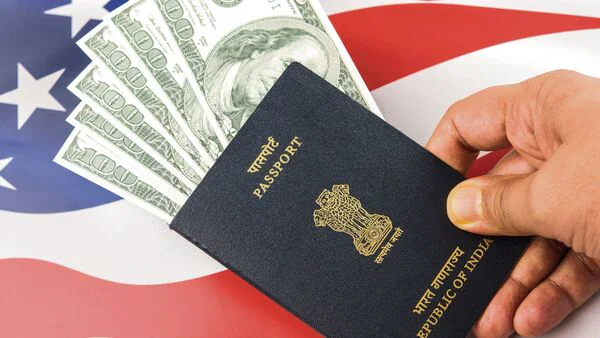In Silicon Valley’s competitive tech staffing ecosystem, Kishore Dattapuram, an Indian-origin entrepreneur, has been sentenced to 14 months in federal prison for orchestrating a widespread H-1B visa fraud scheme. The case highlights systemic vulnerabilities in U.S. immigration controls and the intense pressure in the technology sector’s talent wars.
A Pre-Planned Deception: Fraud Before Jobs
In a case that underscores ongoing abuses within the H-1B visa system, 55-year-old Kishore Dattapuram, co-founder of Nanosemantics, Inc., was convicted of submitting fraudulent visa applications designed to deceive U.S. immigration authorities. Dattapuram, along with co-defendants Kumar Aswapathi and Santosh Giri, pleaded guilty to conspiracy and multiple counts of visa fraud last November.
Operating from San Jose, California, Nanosemantics presented itself as a legitimate staffing agency connecting skilled foreign workers with major Bay Area tech companies. However, court documents reveal a more sinister reality: Dattapuram and his associates filed numerous H-1B petitions falsely claiming that workers already had positions secured with specific employers, when in fact no such jobs existed.
The fraudulent applications enabled Nanosemantics to bypass regulatory requirements, ensuring workers obtained visas faster than competitors who followed the legal process. The scheme allowed the firm to stockpile a pool of pre-approved workers, ready to be deployed whenever client demand arose—a sharp and illegal advantage in the cutthroat staffing industry.
ALSO READ: Call for Cyber Experts: Join FCRF Academy as Trainers and Course Creators
Pay-to-Play: Buying Fake Job Offers
Investigators found that Dattapuram went to extreme lengths to perpetrate the fraud. On several occasions, he paid companies simply to be named as “end-clients” on visa paperwork, fully aware that the foreign workers would never be employed by those firms.
The U.S. Citizenship and Immigration Services (USCIS) requires employers to submit detailed evidence about job roles, wages, and client relationships when applying for an H-1B visa. By fabricating such evidence, Dattapuram effectively gamed the system designed to ensure that only genuine employment opportunities justify granting temporary work visas to foreign nationals.
The goal was simple but highly illegal, federal prosecutors said. Nanosemantics wanted to pre-position visa holders ahead of actual job openings, short-circuiting the proper process and giving itself a major competitive edge, they said.
The financial incentives were substantial: Nanosemantics received commissions for every worker it placed with a client. With pre-approved visa holders ready to start immediately, Nanosemantics could respond to client demands faster than rival firms still navigating the lengthy H-1B petition process.
Legal Consequences: Prison, Fines, and Financial Forfeiture
On Monday, April 21, U.S. District Judge Edward J. Davila handed down Dattapuram’s sentence: 14 months of imprisonment, followed by three years of supervised release. In addition, Dattapuram was ordered to forfeit ₹10,47,160, the proceeds he obtained through the fraudulent scheme—and pay a₹6.26 lakh fine along with a ₹91,850 special assessment fee.
Prosecutors emphasized that the sentencing sends a strong message to tech staffing firms and employers about the consequences of manipulating U.S. immigration laws for profit.

Visa fraud undermines the integrity of our immigration system and harms American workers by distorting the job market, the U.S. Attorney’s Office said in a statement.
Dattapuram’s co-defendants, Kumar Aswapathi and Santosh Giri, who admitted to participating in the conspiracy, are also awaiting sentencing.
The Broader Picture:
The Dattapuram case is just one in a string of recent prosecutions exposing the misuse of the H-1B program. As the U.S. tech industry faces chronic shortages of skilled labor, the temptation to exploit legal loopholes has grown stronger. Law enforcement agencies warn that unless systemic reforms are implemented, cases like Nanosemantics’ may continue to emerge, further eroding trust in a system meant to balance opportunity with fairness.


